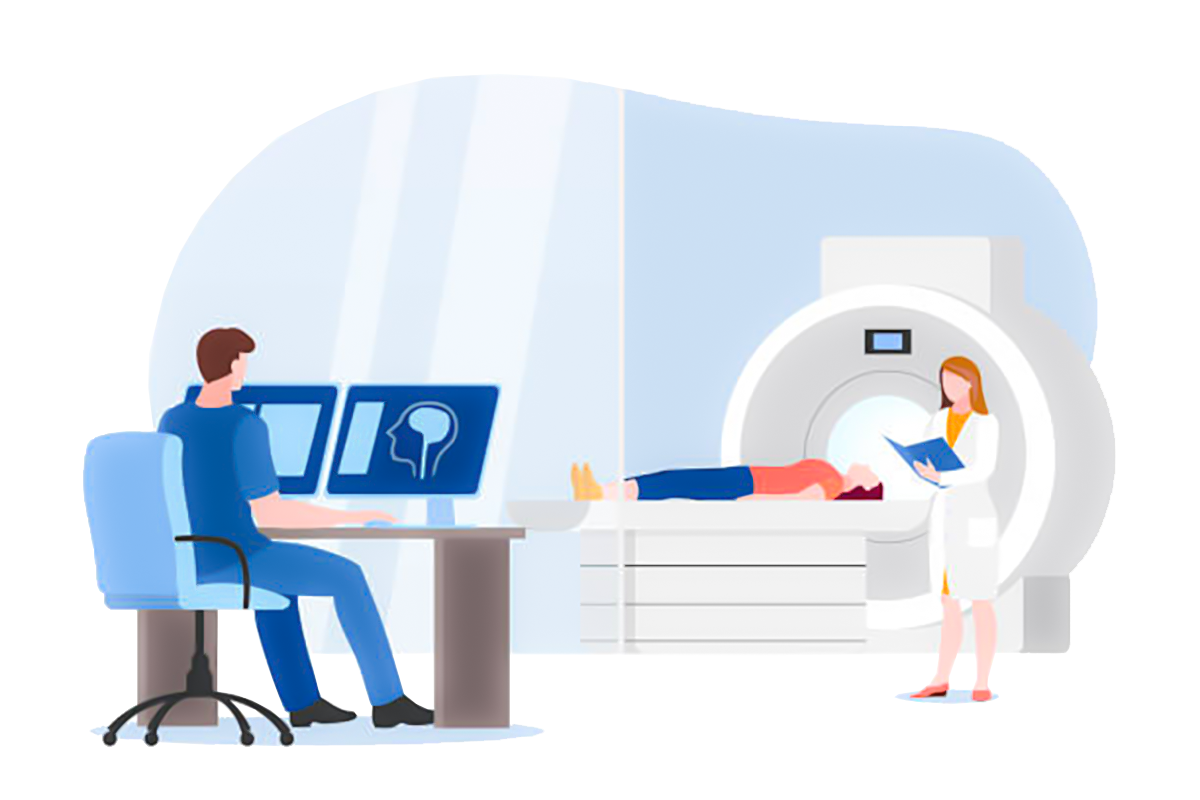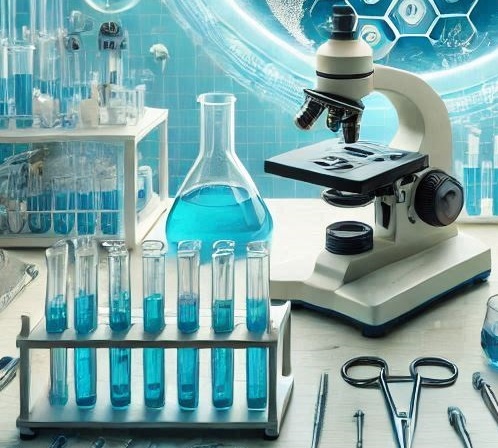This Course Structure is Curated as per the NEP-2020 Guidelines
Course Overview
B.Sc. Nuclear Medicine Technology program at Malla Reddy Vishwavidyapeeth, Hyderabad, is an undergraduate course designed to train students to assist healthcare teams in the safe and effective use of radioactive materials and equipment for diagnosing and treating various medical conditions.
This program focuses on equipping students with the theoretical knowledge and hands-on skills from 1st semester itself. This program provides students with in-depth knowledge and hands-on skills in nuclear imaging techniques such as PET (Positron Emission Tomography), SPECT (Single Photon Emission Computed Tomography), and radionuclide therapy. The curriculum emphasizes safe handling of radiopharmaceuticals, operating imaging systems, and ensuring patient safety throughout nuclear medicine procedures.Students also learn about radiation safety, quality control, and the application of nuclear medicine in clinical diagnostics and therapeutic interventions.
Graduates of this program emerge as ‘Skilled Nuclear Medicine Technologists’, enabling them to pursue further higher studies and research in Nuclear Medicine Technology along with plenty of job opportunities globally.

Course Details
Description: 4 Years Degree Program
No. of Seats: 40
No. of Credits: 160 minimum & as specified
- Eligibility
- Curriculum Structure
- Program Outcomes
- Career Enhancement
- Higher Studies
- Job Roles & Progression
The minimum eligibility for B.Sc. Nuclear Medicine Technology is a pass in 10+2 with at least 50% in Physics, Chemistry, and Mathematics/Biology from a recognized board (CBSE/ISC) or equivalent.
The B.Sc. Nuclear Medicine Technology curriculum covers theoretical knowledge and practical skills in nuclear medicine, radiopharmaceuticals, and imaging techniques, preparing students for diagnostic and therapeutic roles in nuclear medicine.
| Semester | Name of the Subject |
| Semester 1 | Basics of Human Anatomy Fundamentals of Nuclear Medicine Medical Physics – I Radiopharmaceutical Chemistry English – I Practical: Anatomy & Nuclear Medicine Basics Computer Fundamentals |
| Semester 2 | Anatomy – II Physiology Radiopharmacy Medical Physics – II English – II Legal Aspects of Healthcare Practical: Radiopharmacy |
| Semester 3 | Radiation Biology Instrumentation in Nuclear Medicine Radiochemistry Radiation Detection Techniques Communicative English Healthcare Administration |
| Semester 4 | Nuclear Medicine Imaging Radiobiology Quality Control in Nuclear Medicine Practical – Imaging Techniques Project Centric Learning (PCL) |
| Semester 5 | Advanced Imaging Techniques (PET/CT) Radiation Safety and Protection Practical – Advanced Imaging Techniques Internship |
| Semester 6 | Therapeutic Nuclear Medicine Digital Imaging and PACS Nuclear Medicine Technology Applications Practical – Nuclear Medicine Procedures Internship |
| Semester 7 & 8 | On-Job Training and Internship Thesis work |
- Radiopharmaceutical Handling: Preparing and administering radiopharmaceuticals for imaging and therapeutic purposes.
- Nuclear Medicine Imaging: Performing and analyzing PET, CT, and SPECT scans to diagnose various conditions.
- Patient Preparation and Safety: Ensuring safe handling of radioactive materials and patient education regarding procedures.
- Radiation Safety and Protection: Adhering to radiation safety protocols to protect patients, staff, and the environment.
- Quality Control and Equipment Maintenance: Routine calibration and quality assurance of nuclear medicine equipment.
Graduates of B.Sc. Nuclear Medicine Technology can enhance their skills through certifications and advanced training programs:
- Certification in PET/CT Imaging: Advanced skills in Positron Emission Tomography (PET) and Computed Tomography (CT) imaging techniques.
- Radiation Safety Officer (RSO) Certification: Specialized training in radiation safety and protective measures for nuclear medicine.
- Radiopharmaceuticals Certification: Training in the preparation, handling, and administration of radiopharmaceuticals for diagnostic and therapeutic use.
- Advanced Imaging Techniques Certification: Focus on specialized imaging techniques for diagnostic accuracy.
- PACS (Picture Archiving and Communication System) Certification: Training in the management and storage of digital imaging data.
- Master’s in Nuclear Medicine Technology
- Postgraduate Diploma in Radiopharmaceutical Science
- MBA in Healthcare Management
- Ph.D. in Nuclear Medicine
- Certification in Advanced Nuclear Medicine Techniques
| Duration | Roles and Responsibilities | Salary Range |
| 0-3 years | Nuclear Medicine Technologist, Radiopharmacy Assistant | ₹3,50,000 – ₹5,50,000 per annum |
| 3-5 years | Senior Nuclear Medicine Technologist, PET/CT Specialist | ₹5,50,000 – ₹8,00,000 per annum |
| 5-10 years | Nuclear Medicine Department Manager, Lead Radiopharmacy Technologist | ₹8,00,000 – ₹12,00,000 per annum |
| 10+ years | Director of Nuclear Medicine Services, Chief Nuclear Medicine Technologist | ₹12,00,000+ per annum |
Note: Salaries vary based on experience, location, and type of healthcare institution.

Fee Structure Per Academic Year
| Tuition Fee | Miscellaneous Fee | Scholarship | ||
| 150000 ₹ | 10000 ₹ | Above 90% – 10000 ₹ | Between 80-90% – 30000 ₹ | Between 70-80% – 15000 ₹ |




